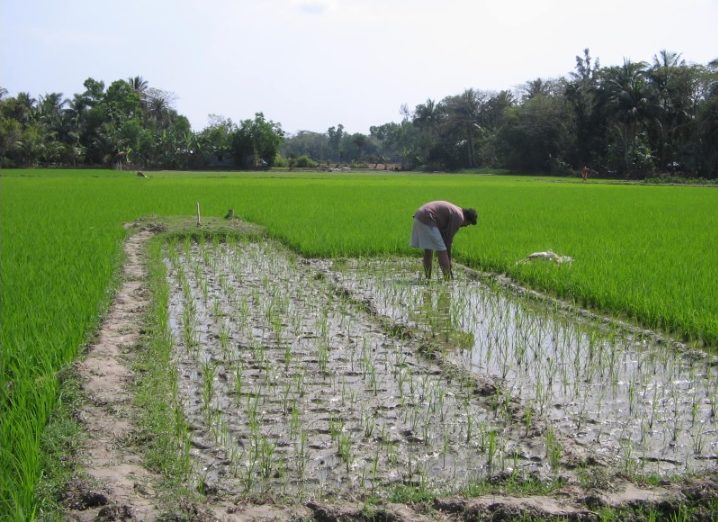FROM LAB TO LAND: how a biotechnology-based research is improving soil quality and reducing chemical fertiliser threat on crops
Can we ever switch to food produced without harmful chemicals? Is it possible to increase soil productivity? Can there be a better solution than buying expensive organic food?
These problematic areas seem to have been addressed by the findings by a team of Calcutta University Botany department led by Professor Krishnendu Acharya. The team has developed a “package” for an easy transition to organic crop production. It can increase “beneficiary microbes” in the soil, produce bio-fertilizers, help plant growth, prevent and protect plants from diseases.
The problem
Around 30-35 per cent crop grain is lost every year due to pest attack, which leads farmers to use chemicals to yield more crops. However, since chemical fertilizers and pesticides are not used scientifically, it degrades the quality of the soil.
A Ministry of Agriculture and Farmers Welfare data shows that 3,060 and 3,712 metric tonnes of chemical pesticides were used in West Bengal in 2014-15 and 2015-16 respectively, while the state used 680 and 950 metric tonnes bio-pesticides in the same period.
Such extensive use of chemicals is harming essential crops and causing a range of diseases including cancer, diabetes and ulcer. Also, excessive use of farmland in West Bengal has significantly reduced the soil fertility with pesticides killing the bacteria that help plants to grow.
Though many farmers want to shift to organic farming, the expensive learning process and high initial investment don’t make it work for them. Lack of proper guidance also makes it difficult to switch to large-scale organic farming.
The team led by Acharya has worked towards overcoming these problems.
What have they found?
They have developed a biotechnology-based system that will help soil and pest management to manage crops from birth to death. It is designed for farmers to produce ingredients for bio-farming.
A low-cost “autoclave” and bio-mass production are already being used by farmers for producing different kinds of bacteria and certain bacterial pesticides.
Farmers have been trained to produce the final product, which must be sprayed on the land to enhance plants’ nutrients and help their growth. Acharya said, “It helps in the production of beneficial metabolites that can readily be taken up by the plants.”

The cost is low and there are other benefits too. “Products sold in market have expiry dates but there is always doubt about their quality because we don’t know the condition of the microbes. Here, farmers can make their own products and subsequently transfer it to the land ensuring the microbes’ efficacy,” he said.
It doesn’t require farmers to be highly educated nor does it require sophisticated laboratory for production.

Acharya and his team also devised a way of improving the quality of bio-fertilisers, making “vermiwash” for plant growth, producing amino acid from the rotten fish and jaggery. They have devised ways of promoting plant growth and to improve the natural immunity of plants to prevent them from disease attacks.
From lab to land
The technology was applied for production of different crops like paddy, vegetables, betel leaves, and the result was impressive according to the researchers.
The researchers in collaboration with West Bengal government’s agriculture department have launched the system in Balagarh block of West Bengal’s Hooghly district after training local farmers. In Hoogly, excessive use of chemical fertilizers has made the soil quality poor. Now, the farmers are running the bio-technological system on their own and it has worked well. Many farmers’ groups from different parts of West Bengal have shown interest in this system and are willing to shift to bio-organic farming, Acharya said.

Director of West Bengal government’s agriculture department, Sampad Patra said, “This package promotes a sustainable way of farming which is benefiting the farming in Balagah.”
Local farmer Dipankar Mondal said production cost for farming vegetables in his three-bigha plot has come down by around 20 per cent.

